BMW iX1 vs Honda HR-V - Differences and prices compared
Costs and Efficiency:
When it comes to price and running costs, the biggest differences usually appear. This is often where you see which car fits your budget better in the long run.
Honda HR-V has a significantly advantage in terms of price – it starts at 29700 £, while the BMW iX1 costs 41800 £. That’s a price difference of around 12086 £.
Engine and Performance:
Under the bonnet, it becomes clear which model is tuned for sportiness and which one takes the lead when you hit the accelerator.
When it comes to engine power, the BMW iX1 has a significantly edge – offering 313 HP compared to 131 HP. That’s roughly 182 HP more horsepower.
In acceleration from 0 to 100 km/h, the BMW iX1 is decisively quicker – completing the sprint in 5.60 s, while the Honda HR-V takes 10.60 s. That’s about 5 s faster.
In terms of top speed, the BMW iX1 performs minimal better – reaching 180 km/h, while the Honda HR-V tops out at 170 km/h. The difference is around 10 km/h.
There’s also a difference in torque: BMW iX1 pulls significantly stronger with 494 Nm compared to 253 Nm. That’s about 241 Nm difference.
Space and Everyday Use:
Beyond pure performance, interior space and usability matter most in daily life. This is where you see which car is more practical and versatile.
Seats: offers more seating capacity – vs .
In curb weight, Honda HR-V is evident lighter – 1452 kg compared to 1940 kg. The difference is around 488 kg.
In terms of boot space, the BMW iX1 offers noticeable more room – 490 L compared to 319 L. That’s a difference of about 171 L.
In maximum load capacity, the BMW iX1 performs to a small extent better – up to 1495 L, which is about 206 L more than the Honda HR-V.
When it comes to payload, BMW iX1 to a small extent takes the win – 495 kg compared to 418 kg. That’s a difference of about 77 kg.
Who comes out on top?
Overall, the BMW iX1 shows itself to be outperforms in nearly all aspects and secures the title of DriveDuel Champion.
It convinces with the more balanced overall package and proves to be the more versatile choice for everyday use.
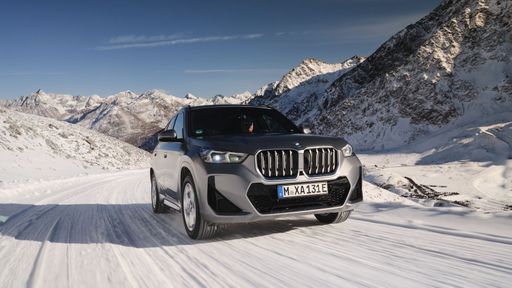 @ BMW Group Press
@ BMW Group Press
BMW iX1
Costs and Consumption
View detailed analysis
Engine and Performance
View detailed analysis
Dimensions and Body
View detailed analysis
BMW iX1
The BMW iX1 wraps BMW's electric ambition into a compact SUV package that feels unexpectedly premium, with sharp handling and a crisp, modern cabin that keeps the driver in charge. It's ideal for buyers who want a stylish, quiet daily driver with useful practicality and tech-savvy touches — plus enough character to make the commute feel less like a chore and more like a short joyride.
details @ BMW Group Press
@ BMW Group Press
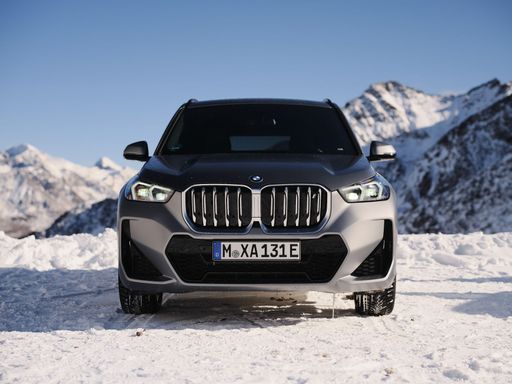 @ BMW Group Press
@ BMW Group Press
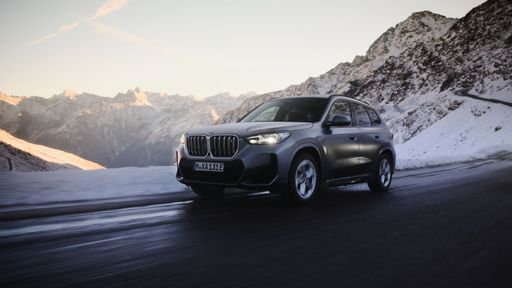 @ BMW Group Press
@ BMW Group Press
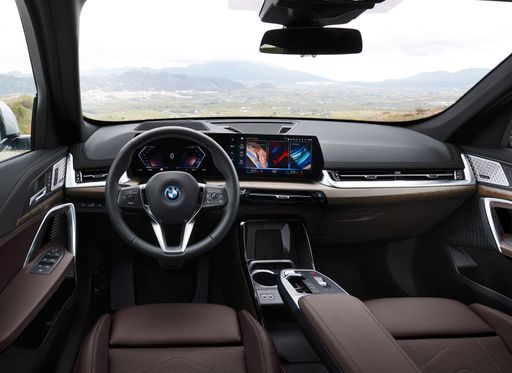 @ BMW Group Press
@ BMW Group Press
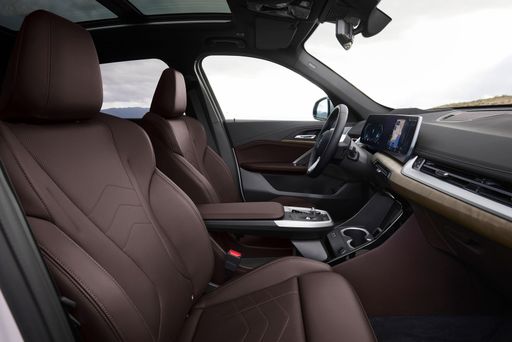 @ BMW Group Press
@ BMW Group Press
Honda HR-V
The Honda HR-V is the sensible compact crossover that blends roomy practicality with a composed, friendly drive, making it an easy pick for buyers who want everyday usability without fuss. It won’t thrill hardcore enthusiasts, but its clever packaging, comfortable cabin and low-key styling make life simpler — and that’s exactly the point.
details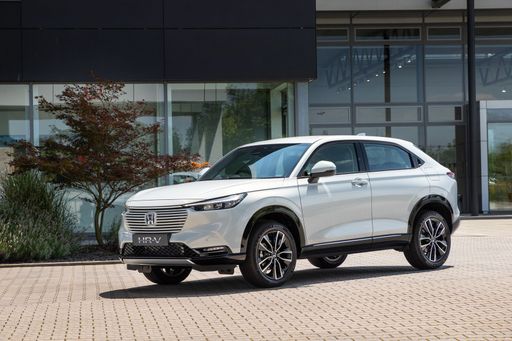 @ Honda Motor Co., Ltd.
@ Honda Motor Co., Ltd.
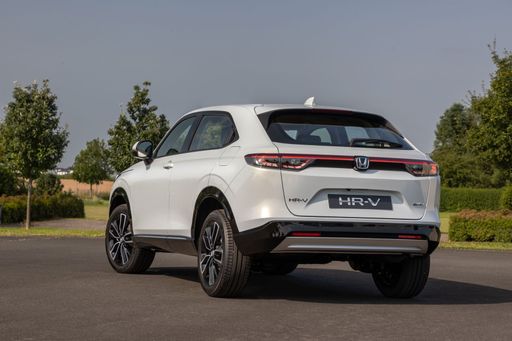 @ Honda Motor Co., Ltd.
@ Honda Motor Co., Ltd.
 @ Honda Motor Co., Ltd.
@ Honda Motor Co., Ltd.
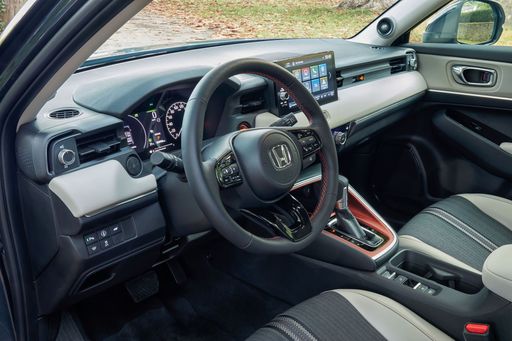 @ Honda Motor Co., Ltd.
@ Honda Motor Co., Ltd.
 @ BMW Group Press
@ BMW Group Press
|
 @ Honda Motor Co., Ltd.
@ Honda Motor Co., Ltd.
|
|
|
|
Costs and Consumption |
|
|---|---|
|
Price
41800 - 54600 £
|
Price
29700 - 35400 £
|
|
Consumption L/100km
-
|
Consumption L/100km
5.40 L
|
|
Consumption kWh/100km
15.8 - 17.1 kWh
|
Consumption kWh/100km
-
|
|
Electric Range
436 - 463 km
|
Electric Range
-
|
|
Battery Capacity
64.80 kWh
|
Battery Capacity
-
|
|
co2
0 g/km
|
co2
122 g/km
|
|
Fuel tank capacity
-
|
Fuel tank capacity
40 L
|
Dimensions and Body |
|
|---|---|
|
Body Type
SUV
|
Body Type
SUV
|
|
Seats
5
|
Seats
5
|
|
Doors
5
|
Doors
5
|
|
Curb weight
1940 - 2085 kg
|
Curb weight
1452 kg
|
|
Trunk capacity
490 L
|
Trunk capacity
319 L
|
|
Length
4500 mm
|
Length
4355 mm
|
|
Width
1845 mm
|
Width
-
|
|
Height
1616 mm
|
Height
1582 mm
|
|
Max trunk capacity
1495 L
|
Max trunk capacity
1289 L
|
|
Payload
495 kg
|
Payload
418 kg
|
Engine and Performance |
|
|---|---|
|
Engine Type
Electric
|
Engine Type
Full Hybrid
|
|
Transmission
Automatic
|
Transmission
Automatic
|
|
Transmission Detail
Reduction Gearbox
|
Transmission Detail
CVT
|
|
Drive Type
Front-Wheel Drive, All-Wheel Drive
|
Drive Type
Front-Wheel Drive
|
|
Power HP
204 - 313 HP
|
Power HP
131 HP
|
|
Acceleration 0-100km/h
5.6 - 8.6 s
|
Acceleration 0-100km/h
10.6 - 10.8 s
|
|
Max Speed
170 - 180 km/h
|
Max Speed
170 km/h
|
|
Torque
250 - 494 Nm
|
Torque
253 Nm
|
|
Number of Cylinders
-
|
Number of Cylinders
4
|
|
Power kW
150 - 230 kW
|
Power kW
96 kW
|
|
Engine capacity
-
|
Engine capacity
1498 cm3
|
General |
|
|---|---|
|
Model Year
2022 - 2023
|
Model Year
2025
|
|
CO2 Efficiency Class
A
|
CO2 Efficiency Class
D
|
|
Brand
BMW
|
Brand
Honda
|
Is the BMW iX1 offered with different drivetrains?
The BMW iX1 is available as Front-Wheel Drive or All-Wheel Drive.
The prices and data displayed are estimates based on German list prices and may vary by country. This information is not legally binding.
